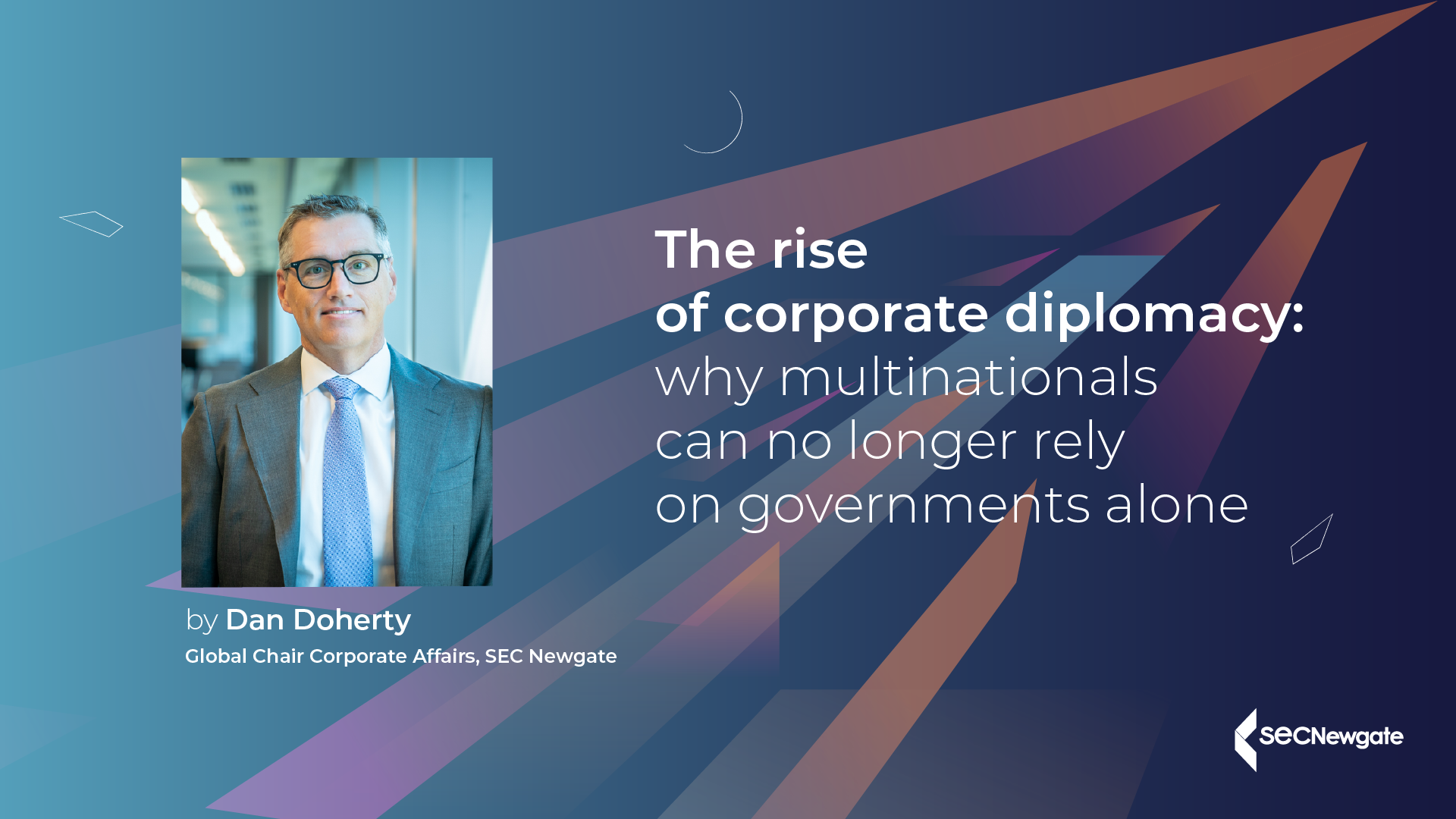About the Author
A new diplomatic reality is emerging in global business. As governments reduce their international presence, and geopolitical volatility becomes the norm, multinational corporations are being forced to step into a role once reserved for state actors: diplomacy.
Nowhere is this shift more visible than in the United States. The State Department has proposed cutting more than 3,000 positions – nearly 15% of its domestic and foreign service workforce. The FY2026 budget calls for a nearly 48% cut to State/USAID funding. Layoffs and office closures are already underway. Meanwhile, soft power arms like the U.S. Agency for Global Media have seen staff reductions of over 85%.
Other governments are following suit. The U.K. Foreign Office has introduced deep austerity measures, reducing overseas staff support and scaling back cultural outreach. The EU’s diplomatic corps plans to downsize 10 delegations and cut 100 staffers. Sweden has shuttered embassies in Africa and Latin America. In short: traditional diplomacy is contracting.
And yet, global business has never been more complex. Supply chains are being redrawn, political risk is rising, and stakeholders in every region are demanding more of companies in terms of transparency, investment, and alignment. The old assumption that a government could provide cover, guidance, or connections is no longer reliable.
When traditional diplomacy steps back, someone has to step forward.
What is corporate diplomacy?
Corporate diplomacy is not lobbying. It’s not just government relations. It’s the emerging discipline of engaging foreign governments, regulators, civil society, and communities as a direct extension of business strategy.
It means:
- Navigating sensitive issues like national security, human rights, or resource access in real time
- Building cross-sector coalitions that enable long-term license to operate
- Anticipating geopolitical risk and shaping perceptions in volatile regions
- Aligning brand behavior with local norms without losing strategic focus
The stakes are high. Whether it’s managing the fallout of a sanctions regime, resolving a regulatory standoff, or securing a multi-billion-dollar investment in a complex political climate, companies are increasingly on their own.
The diplomatic vacuum is real
In recent months, the risks have been laid bare. From Red Sea shipping disruptions to a near-blockade of the Strait of Hormuz, geopolitical flashpoints are no longer isolated. They are supply chain events. Reputational events. Shareholder events.
The diplomatic infrastructure meant to provide stability, mediation, and local insight is shrinking just as demand is surging. Executives are being pulled into roles that require not just negotiation skills, but geopolitical fluency.
The implications for corporations are clear: Governments’ retreat from diplomatic engagement – compounded by U.S. State Department cuts – creates a global diplomatic vacuum. Multinationals cannot afford to depend solely on embassies or government support, especially in markets with limited or shrinking public diplomacy resources. Now more than ever, companies need to develop corporate diplomacy capabilities – including local stakeholder engagement, geopolitical intelligence, reputation management, and crisis response – to safeguard their international operations.
What companies must build
To operate successfully in this new environment, companies must:
- Develop internal teams capable of stakeholder mapping, geopolitical risk analysis, and cross-border influence
- Forge trusted relationships with local governments, NGOs, trade associations, and communities
- Build integrated communications and issues management capabilities that reflect both local realities and global priorities
- Invest in scenario planning and diplomatic readiness as core business functions
A strategic role for corporate affairs
This is not a job for corporate communications alone. It demands an elevated, cross-functional corporate affairs capability that understands business strategy and geopolitical context in equal measure.
At SEC Newgate, we work with companies to build precisely this capability. We bring local insight, global coordination, and a clear-eyed view of how reputational capital is built and protected in an uncertain world. We help clients build bridges where institutions have receded, and establish credibility in markets where political risk is baked in.
In this moment of diplomatic retreat, companies must recognize the gap – and rise to fill it. Corporate diplomacy is not a luxury. It’s a requirement for growth, stability, and relevance in the world ahead.

